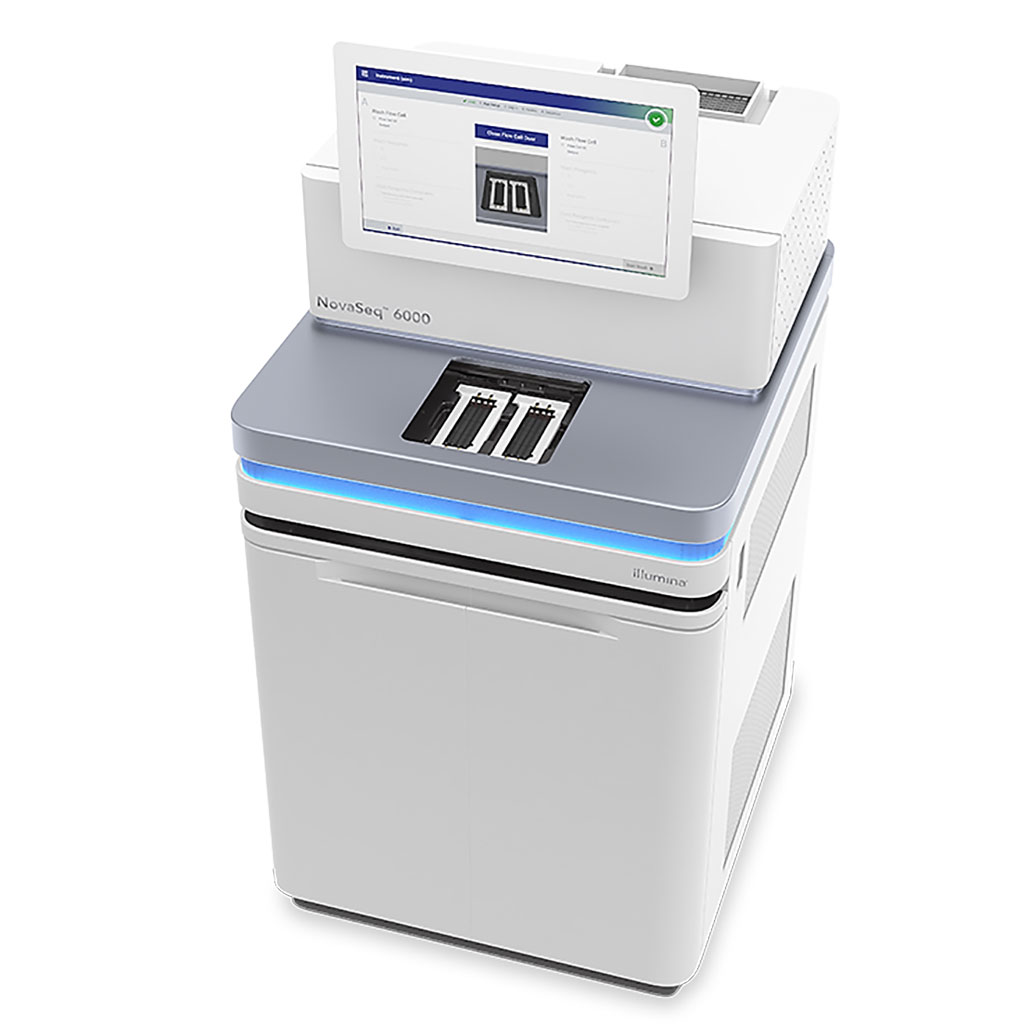Familial Hypercholesterolemia Tends to Slip Past Genetic Tests
By LabMedica International staff writers
Posted on 10 Jun 2021
Familial hypercholesterolemia is a genetic disorder characterized by high cholesterol levels, specifically very high levels of low-density lipoprotein (LDL), in the blood and early cardiovascular disease. The most common mutations diminish the number of functional LDL receptors in the liver.Posted on 10 Jun 2021
Familial hypercholesterolemia (FH) is the most common inherited cardiovascular disease and carries significant morbidity and mortality risks. Genetic testing can identify affected individuals, but some array-based assays screen only a small subset of known pathogenic variants. FH is an autosomal dominant disorder most frequently associated with variants in the LDL receptor (LDLR) gene.

Image: The NovaSeq 6000 performs whole-genome sequencing (Photo courtesy of Illumina)
Molecular Biochemists at the Geisinger Genomic Medicine Institute (Danville, PA, USA) and their colleagues carried out a cross-sectional study and compared comprehensive genetic test results for clinically significant variants associated with FH with results for a subset of 24 variants screened by a limited-variant array. Data were deidentified next-generation sequencing results from indication-based or proactive gene panels. Individuals receiving next-generation sequencing–based genetic testing, either for an FH indication between November 2015 and June 2020 or as proactive health screening between February 2016 and June 2020 were included.
Genes were targeted with oligonucleotide baits to capture the exons ±10 base pairs of adjacent intronic sequence and certain noncoding regions of clinical interest. Targeted regions were sequenced to a mean depth of 350× read coverage (minimum 50×). All primary sequencing was performed on Illumina HiSeq or NovaSeq instruments (Illumina, San Diego, CA, USA). The number of pathogenic or likely pathogenic (P/LP) variants were identified. The study included 4,563 individuals who were referred for FH diagnostic testing and 6,482 individuals who received next-generation sequencing of FH-associated genes as part of a proactive genetic test. Among individuals in the indication cohort, the median (interquartile range) age at testing was 49 (32-61) years, 55.4% (2,528 of 4,563) were female, and 63.6% (2,902 of 4,563) were self-reported White/Caucasian.
The cohorts were tested for more than 2,000 possible variants in four FH-associated genes: LDLR, APOB, PCSK9, and LDLRAP1. The team reported that in the indication cohort, the positive detection rate would have been 8.4% (382 of 4,563) for a limited-variant screen compared with the 27.0% (1,230 of 4,563) observed with the next-generation sequencing–based comprehensive test. As a result, 68.9% (848 of 1,230) of individuals with a P/LP finding in an FH-associated gene would have been missed by the limited screen.
The potential for missed findings in the indication cohort varied by ancestry; among individuals with a P/LP finding, 93.7% (59 of 63) of self-reported Black/African American individuals and 84.7% (122 of 144) of Hispanic individuals would have been missed by the limited-variant screen, compared with 33.3% (4 of 12) of Ashkenazi Jewish individuals. In the proactive cohort, the prevalence of clinically significant FH variants was approximately 1:191 per the comprehensive test, and 61.8% (21 of 34) of individuals with an FH-associated P/LP finding would have been missed by a limited-variant screen.
The authors concludes that limited-variant screens may falsely reassure the majority of individuals at risk for FH that they do not carry a disease-causing variant, especially individuals of self-reported Black/African American and Hispanic ancestry. The study was published on May 26, 2021 in the journal JAMA Cardiology.
Related Links:
Geisinger Genomic Medicine Institute
Illumina














